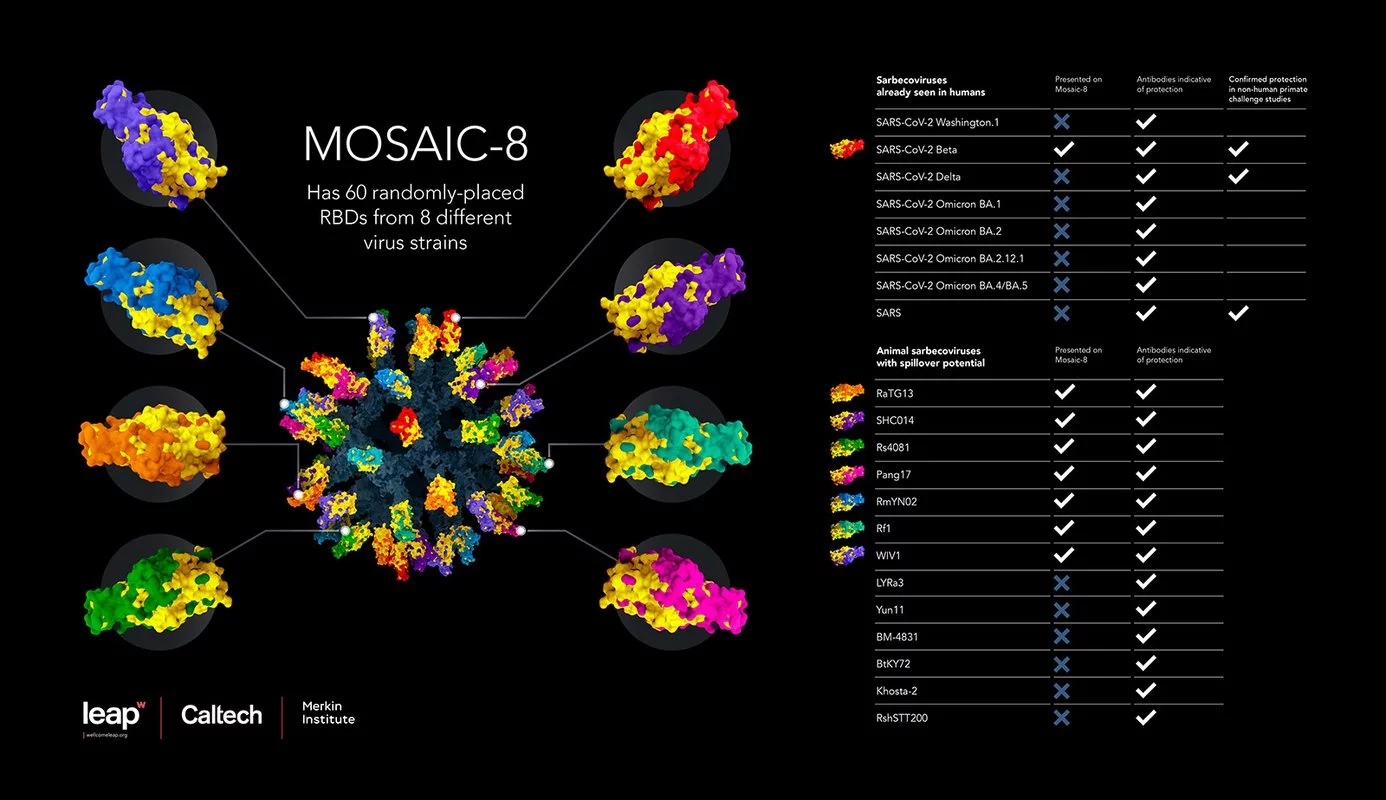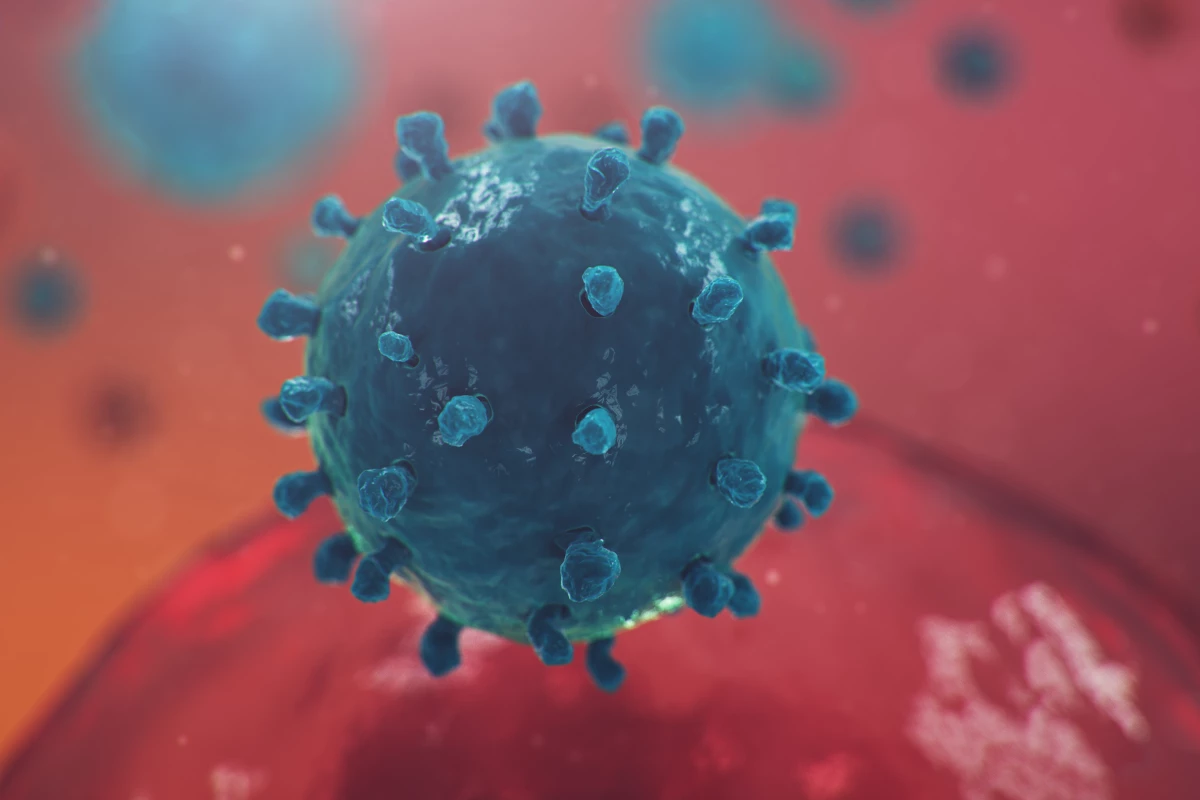As scientists frantically chase a rapidly mutating SARS-CoV-2 virus by trying to update current COVID vaccines to better target circulating variants, a huge project is bubbling away in the background. The goal is to create a universal coronavirus vaccine designed to generate such broad immunity it will protect people from all currently circulating strains of SARS-CoV-2, as well as any future variants yet to emerge. And there are several compelling candidates in the pipeline.
A new study published in the journal Science is reporting promising results from preclinical studies led by researchers at Caltech. The vaccine utilizes a novel mosaic nanoparticle technology to protect not only against SARS-CoV-2 but also the original SARS, and several common cold coronaviruses.
The experimental vaccine focuses on a particular genera of coronaviruses called betacoronaviruses. These are the most clinically relevant types of coronaviruses to humans, including SARS, MERS, SARS-CoV-2, and two coronaviruses linked to the common cold - OC43 and HKU1.
Pamela Bjorkman, a Caltech researcher leading the project, said generating broad immunity against the entire group of betacoronviruses should offer protection from new viruses that could emerge in the future. And considering we’ve had three dangerous viruses emerge from the betacoronavirus family over the past 20 years, it is crucial to get ahead of what could be the next pandemic.
“What we're trying to do is make an all-in-one vaccine protective against SARS-like betacoronaviruses regardless of which animal viruses might evolve to allow human infection and spread,” said Bjorkman. “This sort of vaccine would also protect against current and future SARS-CoV-2 variants without the need for updating."
The Caltech vaccine uses nanoparticle scaffolds to attach a number of different betacoronavirus fragments. Eight different betacoronaviruses are targeted by the vaccine: SARS-CoV-2, and seven other betacoronaviruses currently only circulating in animals but all holding the potential for mutating into a form that could infect humans in the future.
The vaccine does not focus on the traditional coronavirus spike protein, but instead uses viral fragments called receptor-binding domains (RBDs). These are parts of the virus that act as a kind of interface between the spike protein and ACE2 receptors in human cells. RBDs are like the anchor that links the virus up with the human receptor.

And recent animal studies testing this novel vaccine, dubbed Mosaic-8, have delivered impressive results. Across a number of mouse and primate trials, the researchers found the vaccine successfully protects against most betacoronavirus strains.
Interestingly, the researchers tested the Mosaic-8 design against a nanoparticle solely loaded with a SARS-CoV-2 RBD. When mice were exposed to the original SARS virus, only the animals given the Mosaic-8 vaccine survived. This suggests the combination of eight different antigens does potentially generate broad cross-protective immunity against different types of betacoronaviruses.
"Animals vaccinated with the mosaic-8 nanoparticles elicited antibodies that recognized virtually every SARS-like betacoronavirus strain we evaluated," noted study co-author Alexander Cohen. "Some of these viruses could be related to the strain that causes the next SARS-like betacoronavirus outbreak, so what we really want would be something that targets this entire group of viruses. We believe we have that."
Thanks to a big injection of funding from The Coalition for Epidemic Preparedness Innovations (CEPI), Mosaic-8 is on track to move to Phase 1 human trials very soon. Because it is 2022 and most people in the world have either already received a COVID-19 vaccine or been previously infected with SARS-CoV-2, the researchers are first conducting animal studies testing the novel vaccine in previously exposed animals.
“There have already been three serious coronavirus epidemics or pandemics in the twenty-first century – and COVID-19 continues to have a devastating impact on the world’s health, society, and economy,” noted Richard Hatchett, CEO of CEPI. “The creation of vaccines that could provide broad protection against emerging COVID-19 variants and future coronavirus threats would not only help mitigate the damaging effects of another COVID-19-like pandemic, it could also help reduce the time taken and funding spent continually updating vaccine formulations.”
Mosaic-8 is certainly not the only universal coronavirus vaccine currently in development. There are no less than 10 different research groups working with different strategies to produce a coronavirus vaccine that protects from current and future variants.
The US Army, for example, earlier this year reported successful preclinical results testing a unique ferritin nanoparticle with the capacity of holding 24 different coronavirus antigens. This research has already commenced the first phase of human trials and results are expected soon.
The new study was published in the journal Science.
Source: Caltech




